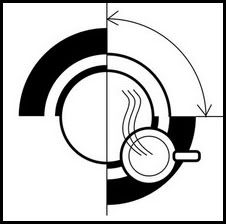I like the new doc very much, as does Mike. His assessment is that I am an excellent candidate for the transplant, and he can see no reason why I should not do well. He puts me into the group as having "the best risk category" for the procedure because I have no serious health problems at all otherwise. As I am fond of telling people, except for this pesky MDS I am in great shape! And he says I have a good attitude.
A new perspective: His reaction after looking at my past bone marrow biopsies and blood count record was surprise that the other doctors had been bothering with Vidaza and Dacogen at all instead of recommending right away that I go for the transplant. His assessment is that with all the DNA irregularities that show up in my tests, I am at high risk for developing leukemia if I go on as I have been. Of course, I have been told all along that this is a risk, although it has not been emphasized so much. And I think some of this reaction is simply that every doctor thinks "his cure" is always the "right cure." Surgeons usually think surgery is the answer; hematologists using chemo think drugs like Vidaza and Dacogen are the answer; and transplanters think transplants are the answer.
Nevertheless, his summary was something like: "My goodness! You are only 54 years old! A young girl still! Those chemo treatments might give you a few years, but they are never going to CURE the disease you have. We need to find a way to give you not a few years but a LIFETIME to live!" So, as you can see, Dr. Couriel feels very positive about going ahead with this and is only surprised that the other doctors had not already sent me to see him by now. You see why I like him. He understands I need the lifetime cure!
He also feels very strongly that my DNA results are indicative of a patient that is likely to get leukemia without a transplant. So, notwithstanding the bias of any doctor to think "his cure" is the "right cure," in this case the other doctors here had pretty well reached the same conclusion about doing the transplant, even if it took them longer to get there. Also, just for the record, I would guess Dr. Couriel is 40-something, so he is probably younger than me, the "young girl" patient. But he tells of a 66 year old lady he has recently worked with who did very well with no complications at all and is now "having the time of her life."
So it looks like I will be "going to transplant," as they say. It is true that not everyone survives this process, but the majority do--probably at least 70% statistically he indicated when Mike asked directly about this. He also emphasizes strongly that we should not think of my case as a statistic in some percentage group; instead I am "100 per cent in his group." And he seems to feel very confident that he can make me well.
He asked about siblings (the most likely matching donors), talked some about other matches in the data base if siblings are not suitable for any reason and ordered a new bone marrow biopsy to be done ASAP.
In a lot of cases, but not all, there are other residual problems, such as rashes or auto-immune issues, even after a successful transplant. But these are usually treatable, often with steroids if necessary. Normally, after a year or so most people do not have to take any anti-rejection drugs. (This is perhaps the only kind of "organ" transplant where the recipient usually does NOT have to take immunosuppressive drugs forever. A nice thing.) We also talked with a "transplant coordinator" about logistics and mailing kits to gather blood samples from donors, etc.
We stayed overnight in Nashville and I had the new bone marrow biopsy yesterday morning. I am scheduled to come back to see him in 3 weeks--about the time that early results should be in on blood tests for Mial and Sally to see if they match.
End of Part 3. Stay tuned for Part 4.
















 Alabama Time
Alabama Time Paris Time
Paris Time Venice Time
Venice Time










No comments:
Post a Comment